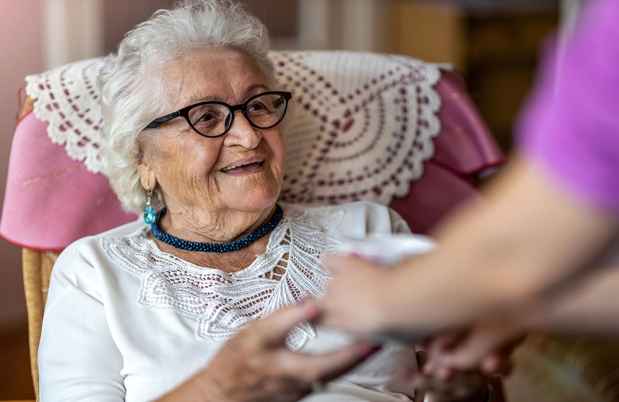McLean Hospital’s third annual Technology in Psychiatry Summit (TIPS) was the largest yet. The event drew some 300 researchers, clinicians, business leaders, and others from 11 countries. Held at Harvard Medical School’s Joseph B. Martin Conference Center in Boston from October 28 through 29, the event looked at the many ways digital technology is transforming treatment for psychiatric illnesses.
TIPS featured more than 70 presentations and posters highlighting the latest advances in digital psychiatry, submitted by researchers, clinicians, and representatives from the technology and engineering communities. In addition, event presentations were livestreamed, allowing attendees and people around the world to engage with the meeting using the conference app.
According to Ipsit Vahia, MD, medical director of the McLean Institute for Technology in Psychiatry and chair of the TIPS program committee, “The growth of the conference parallels the growth of digital psychiatry as an area of specialization.” At the first summit in 2017, he said, “A lot of the focus was around the potential for technology in psychiatry, but the conversation has matured.” At this year’s event, he said, discussions focused on questions such as “how can we get this technology to tangibly impact patient care, and how do we consider factors related to ethics, data privacy, and data security?”
With the theme “The Future of Mental Health Across the Life Span,” this year’s event tackled those topics and more. Panel discussions addressed the potential impact of digital technology on geriatric mental health and on child and adolescent mental health. Other panels looked at longitudinal data collection and ethical considerations raised by the introduction of new technology.

The panels were moderated by several McLean leaders, including Gary Gottlieb, MD (former president of McLean Hospital), Anthony Sossong, MD, MS, Justin T. Baker, MD, PhD, and Benjamin Silverman, MD.
“One of the highlights of the conference was the interactive panel on the ethics of working with digital tools both in research and in clinical care,” Vahia said. He explained that the panel was presented in “an innovative format in which attendees considered ethical questions, and the panel live-polled the audience to steer the discussion.”
The three keynote speakers at TIPS urged individuals from academia, industry, the public sector, and the nonprofit world to collaborate to improve care for those with psychiatric disorders. Speakers included Wendy Nilsen, PhD, from the National Science Foundation, Molly Coye, MD, MPH, from the health systems network AVIA, and Saul Levin, MD, MPA, FRCP-E, chief executive officer and medical director of the American Psychiatric Association.
Beyond the panels and speeches, the summit provided attendees many opportunities to network with colleagues and potential collaborators. “One of the most exciting parts of the conference is the conversations that happen in the hallways during the lunch and coffee breaks,” Vahia stated. “There is now a history of research collaborations and partnerships between investigators and industry born out of connections made at the meeting.”
Looking ahead, Vahia sees continued progress in digital psychiatry. “The literature in this field is growing, more research is being done, and we’re seeing data on how this field should take shape,” he said. “The summit emphasized the importance of maintaining a patient-focused perspective. We know that the technology will be most effective when it is in service of patient care.”
To cap the meeting, Vahia announced that the 2020 TIPS will take place at the same venue on October 29 and 30 next year.
Media Requests
Journalist or member of the media? We are available 24/7 for media requests.


